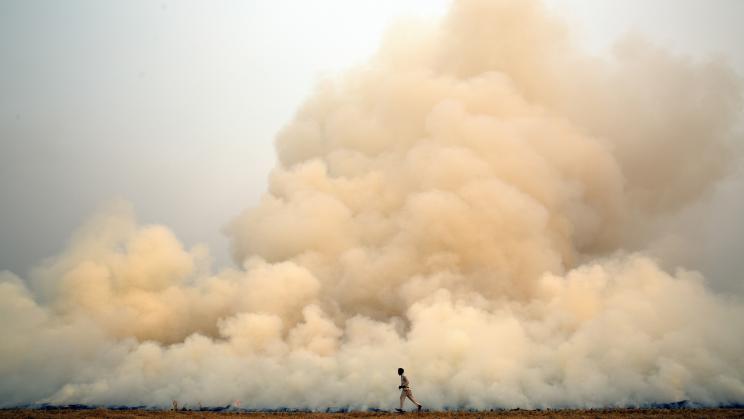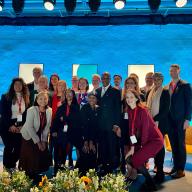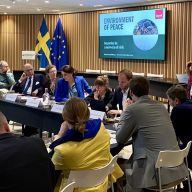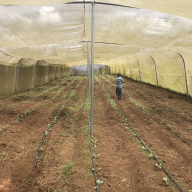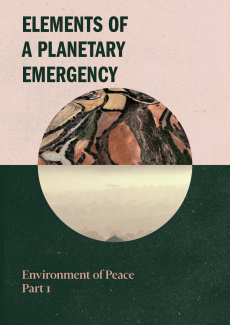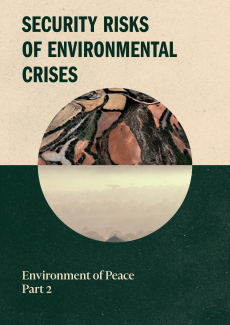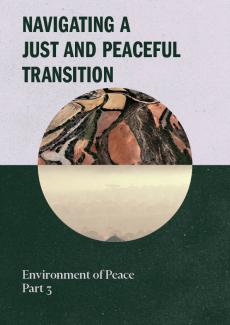Environment of Peace
In May 2022, at the Stockholm Forum on Peace and Development, SIPRI’s Environment of Peace initiative launched a major report for policymakers: Environment of Peace: Security in a New Era of Risk. This policy report synthesized nearly two years of research. The report’s narrative can also be explored on the Environment of Peace website.
The executive summary is available in Arabic, Chinese, English, French, Russian and Spanish.
In December 2022, the Environment of Peace initiative released a research report that sets out the evidential and analytical foundations on which the policy report is built. The research report is published in four parts—Elements of a Planetary Emergency (part 1); Security Risks of Environmental Crises (part 2); Navigating a Just and Peaceful Transition (part 3); and Enabling an Environment of Peace (part 4).
The Environment of Peace initiative was established in May 2020 to assemble the latest research on how climate change and environmental degradation impact international peace and security. The research team consisted of over 30 people from around the world and was guided by an international expert panel and a panel of youth experts.
The research carried out by the initiative shows that the environmental crisis is increasing risks to security and peace worldwide, notably in countries that are already fragile. Indicators of insecurity, such as the number of conflicts, the number of hungry people and levels of military expenditure, are rising; so too are indicators of environmental decline, such as climate change, loss of biodiversity and pollution. In combination, the security and environmental crises are creating compound, cascading, emergent, systemic and existential risks. Without profound changes in approach by institutions of authority, risks will inevitably proliferate quickly.
The Environment of Peace reports survey the evolving risk landscape and document a number of developments that indicate entry points for integrated responses to the crises—in international law and policy, in peacekeeping operations and among non-governmental organizations. They find that two principal avenues need to be developed: (a) combining peacebuilding and environmental restoration, and (b) effectively addressing the underlying environmental issues. They also analyse the potential for existing and emerging pro-environment measures to exacerbate risks to peace and security. The findings demonstrate that only just and peaceful transitions to more sustainable practices can be effective—and that these transitions need to be rapid.
Environment of Peace: Security in a New Era of Risk offers both guiding principles in order to navigate this new era of risk and recommendations for action.
Download translations of the executive summary available in Arabic, Chinese, English, French, Russian and Spanish.
International expert panel
Research for the Environment of Peace report is being guided and supported by a panel of respected international experts, who will bring their knowledge and experience to the report and help to communicate its findings:
|
Margot Wallström (Chair), former Swedish Minister for Foreign Affairs, European Commissioner for the Environment and UN Special Representative on Sexual Violence in Conflict Jörg Balsiger, Director, Institute and Hub for Environmental Governance and Territorial Development at the University of Geneva Helen Clark, former Prime Minister of New Zealand and Administrator, UN Development Programme Ilwad Elman, Chief Operating Officer, Elman Peace Centre, Somalia Chibeze Ezekiel, National Sustainable Development Goals (SDGs) Champion for Ghana and Coordinator, Strategic Youth Network for Development Arunabha Ghosh, Chief Executive Officer, Council on Energy, Environment and Water, India |
Hindou Ibrahim, SDG advocate and environmental activist, Chad Ma Jun, Director, Institute of Public and Environmental Affairs, China Johan Rockström, Co-director, Potsdam Institute for Climate Impact Research Aiyaz Sayed-Khaiyum, Attorney General and Minister for Economy, Civil Service and Communications, Fiji Dan Smith, Director, SIPRI Isabel Studer, Founding Director, Sostenibilidad Global, Mexico Ulf Sverdrup, Director, Norwegian Institute of International Affairs |
The Environment of Peace initiative is funded by the governments of Norway, Switzerland and Sweden.
Contact
For additional enquiries, please contact the Environment of Peace secretariat: environmentofpeace@sipri.org.
